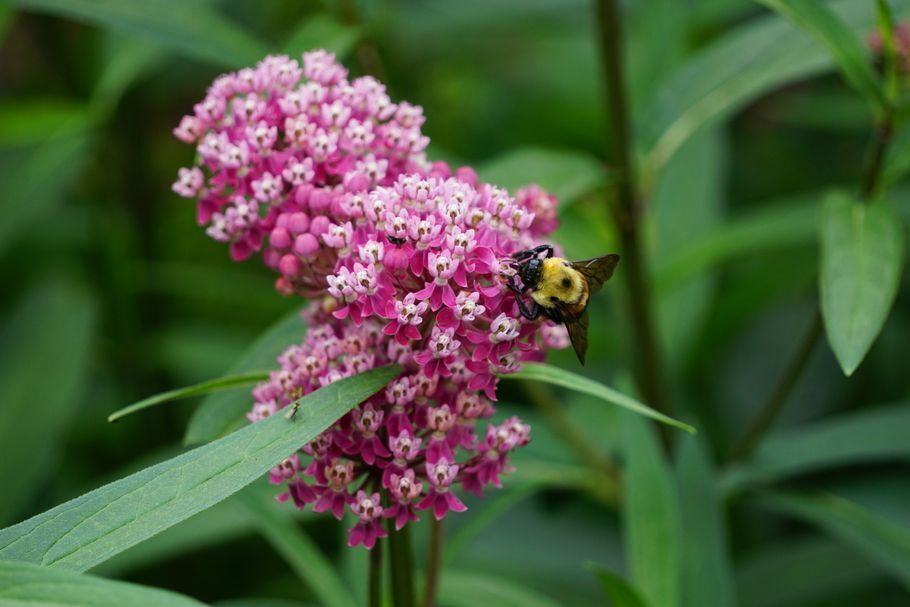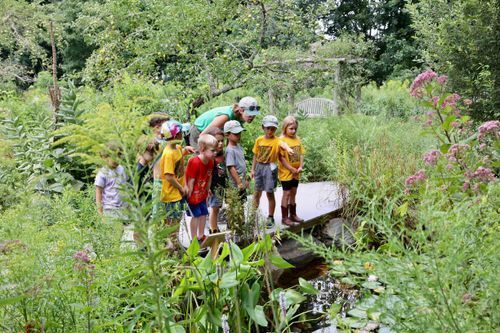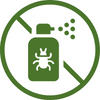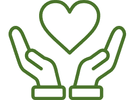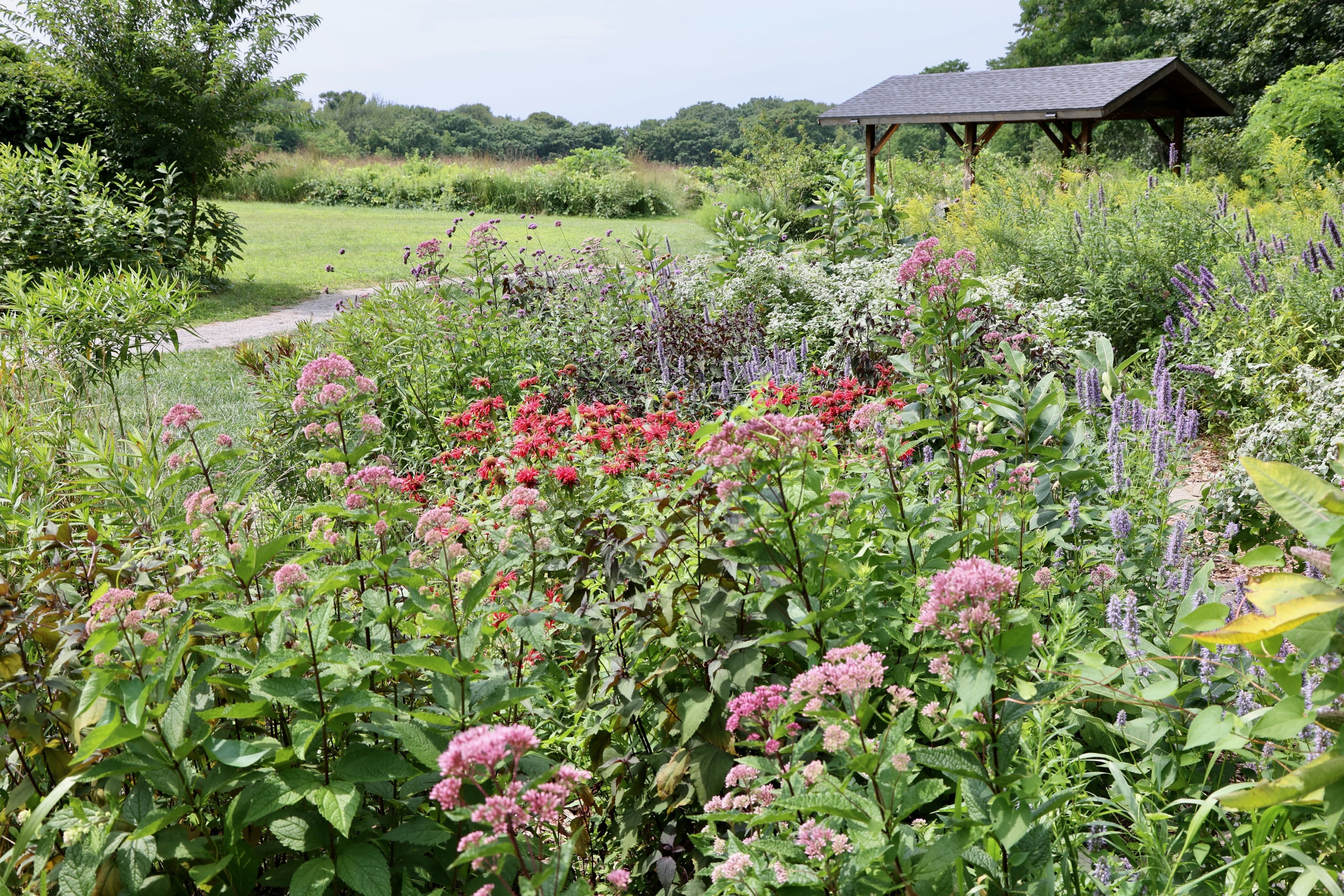Protecting Pollinators
Vital to the health of natural food webs, pollinators are a critical part of our ecosystems. Transferring pollen from flower to flower, they fertilize plants that lead to the growth of fruit, vegetables, and grains that we depend on. Pollinators include vertebrates like birds, bats and mice and invertebrates including bees, butterflies, and wasps.
Many pollinators are in steep decline, threatening our ecosystems and food systems. Birds, which rely on insects and the fruits and seeds produced by pollinated plants for food, are also in seeing severe declines in populations worldwide.
What is causing the decline of pollinators?
-
Habitat Loss
Our native wildlife, including insects and birds, have co-evolved with our native plants over millions of years so that both benefit from pollination. However, the plants found in most urban, suburban, and agricultural areas are largely non-native. Without native plants to provide necessary food and shelter, our lawns, yards and parks are virtual deserts as far as our native wildlife is concerned.
-
Climate Change
Some insects and birds simply cannot tolerate higher temperatures. Furthermore, as weather patterns become more extreme and average temperatures rise, the timing of species interaction can be altered. Plants may begin to bloom earlier, resulting in altered food production for insects and birds. Wildlife may not find the resources they need at the time of year when they are needed. This can affect reproduction and cause further population decline.
-
Chemical Exposure
Many commonly occurring landscapes, such as lawns, golf courses and agriculture, depend on chemicals such as pesticides, fertilizers, and herbicides. These chemicals are toxic to pollinators, birds, and other wildlife - as well as people and pets.
-
Invasive Species
As foreign species of plants, insects, fungi, and bacteria are introduced, they interfere with the functioning of our ecosystems by pushing out native species, decreasing the availability of food resources for wildlife, and introducing pathogens and parasites for which native species have no defense.
What is Audubon Doing to Protect Pollinators?
Rhode Island is home to nearly 45 species of bee, over 400 species of moth and 59 species of butterfly! Audubon Society of Rhode Island committed to supporting healthy habitat for the species that live on and use our properties and offers ongoing educational opportunities for people to learn about the critical importance of pollinators and native plants.
Our approach involves:
- Creating and enhancing pollinator habitat on our properties.
- Supporting pollinators and native plants across the state through active land management, field research, species monitoring, and advocacy.
- Educating and engaging people to learn more about pollinators and native plants through educational programs and community science projects.
How Can YOU take action to help pollinators?
-
There are many ways you can support pollinator populations. Learn about simple actions you can take on your property to create healthier pollinator habitat. Use our guide to create a pollinator garden at your home; it provides information on native plants to consider and other useful tips.
-
The Audubon Pollinator Alliance is focused on connecting neighbors and communities who have pollinator gardens! Together we can form a state-wide network that supports bees, birds, butterflies, and other pollinators. Joining the Alliance allows us to utilize the information on your pollinator garden and others across the state to inform decisions on policy and rally others to join the cause.
-
Rhode Island businesses are no longer permitted to sell pesticides containing neonicotinoids to untrained users. You can continue to support pollinators by holding accountable local businesses that sell landscaping products.
-
-
-
We rely on your generous donations to expand native habitat, support pollinator health and create sustainable communities: Donate Today!
Get Inspired: Visit the Palmieri Pollinator Garden
-
The Palmieri Pollinator Garden was designed to inspire homeowners to plant native perennials, trees, shrubs, and grasses that support the local ecosystem. Designed by John Gwynne in 2019, the garden was developed around the existing apple trees, and features a perennial border, a wildlife pond, and an arch of “New Dawn” roses in honor of Dr. Palmieri.
The gardens are tended by URI Master Gardeners and Audubon staff and volunteers. Visitors are encouraged to stroll and enjoy the garden, sit on a bench below the rose-covered pergola, watch bees and butterflies alight on the blossoms, and learn about the current pollinator crisis and what they can do to help.
-
Visit the Palmieri Pollinator Garden at the Audubon Nature Center and Aquarium! Images by Richard Staples and Casey Chan.
